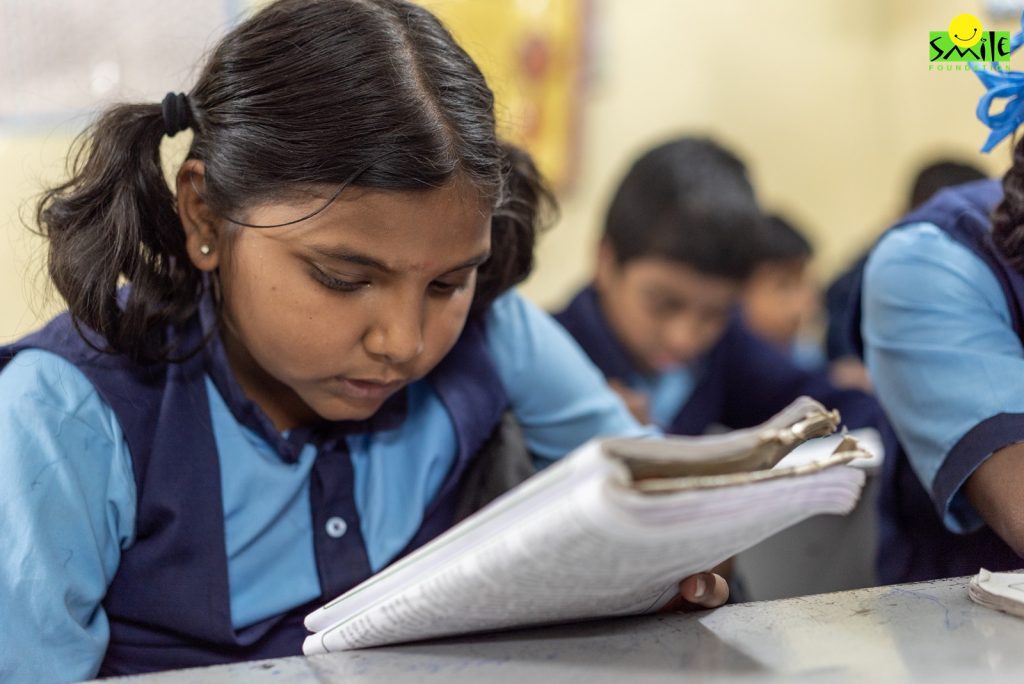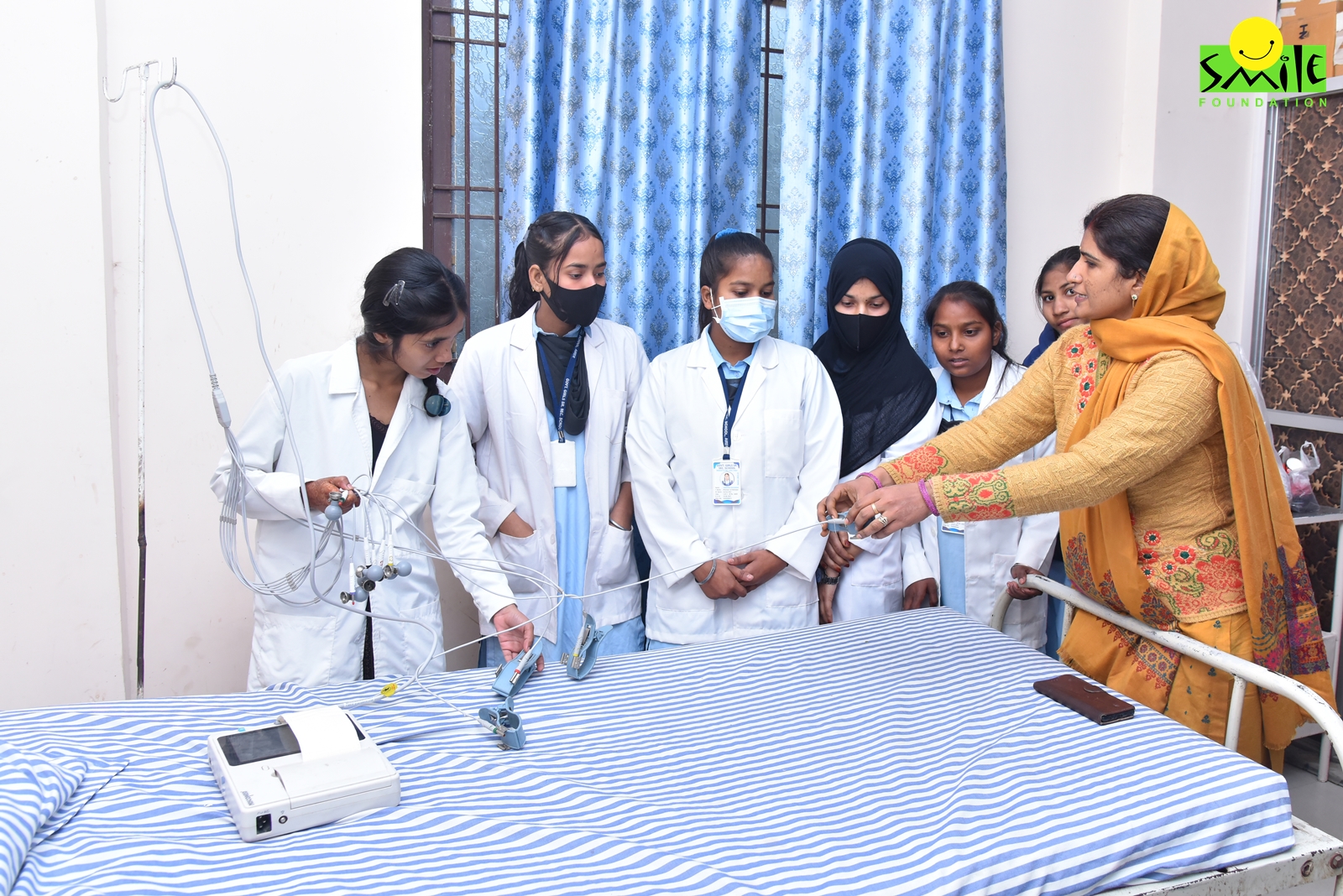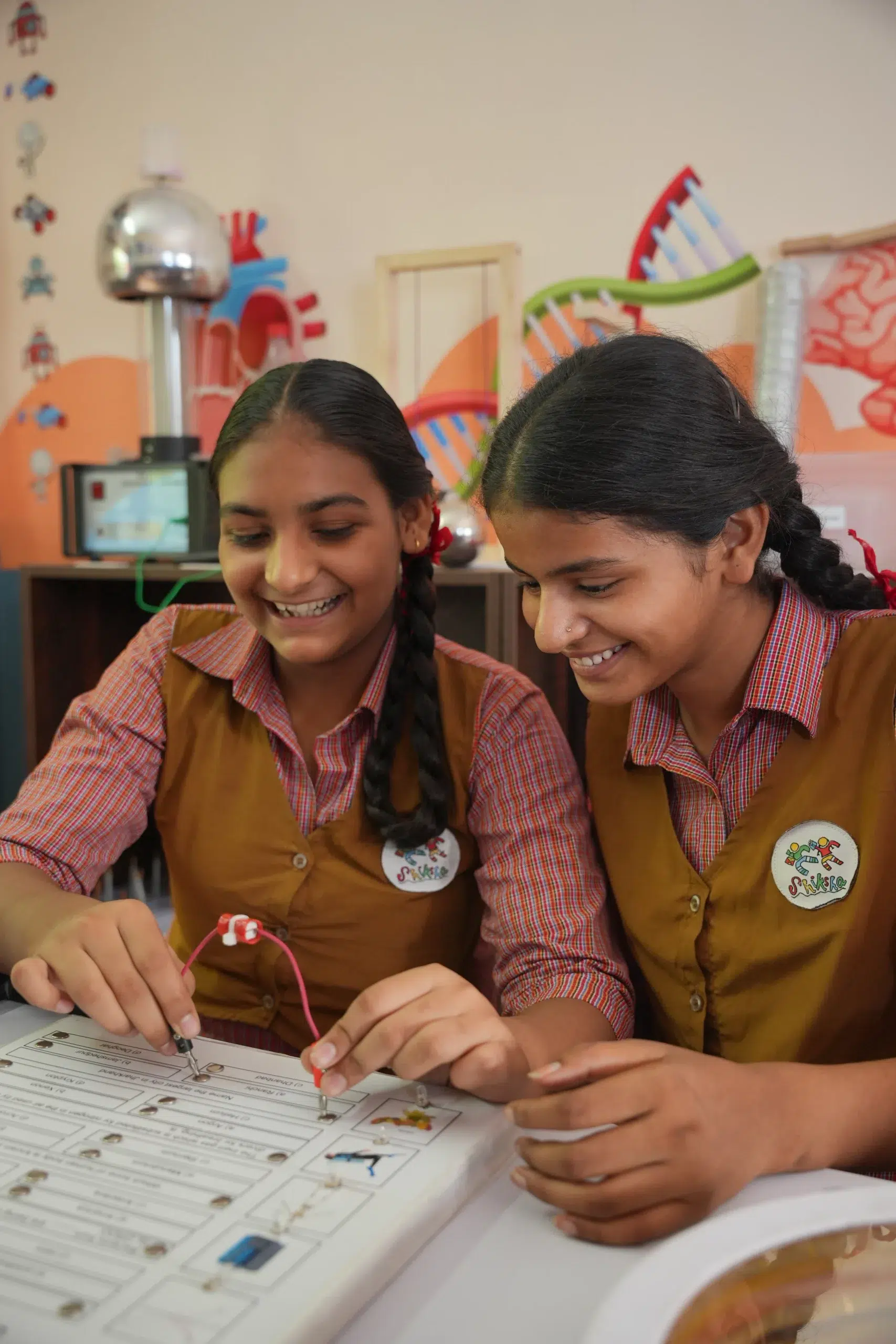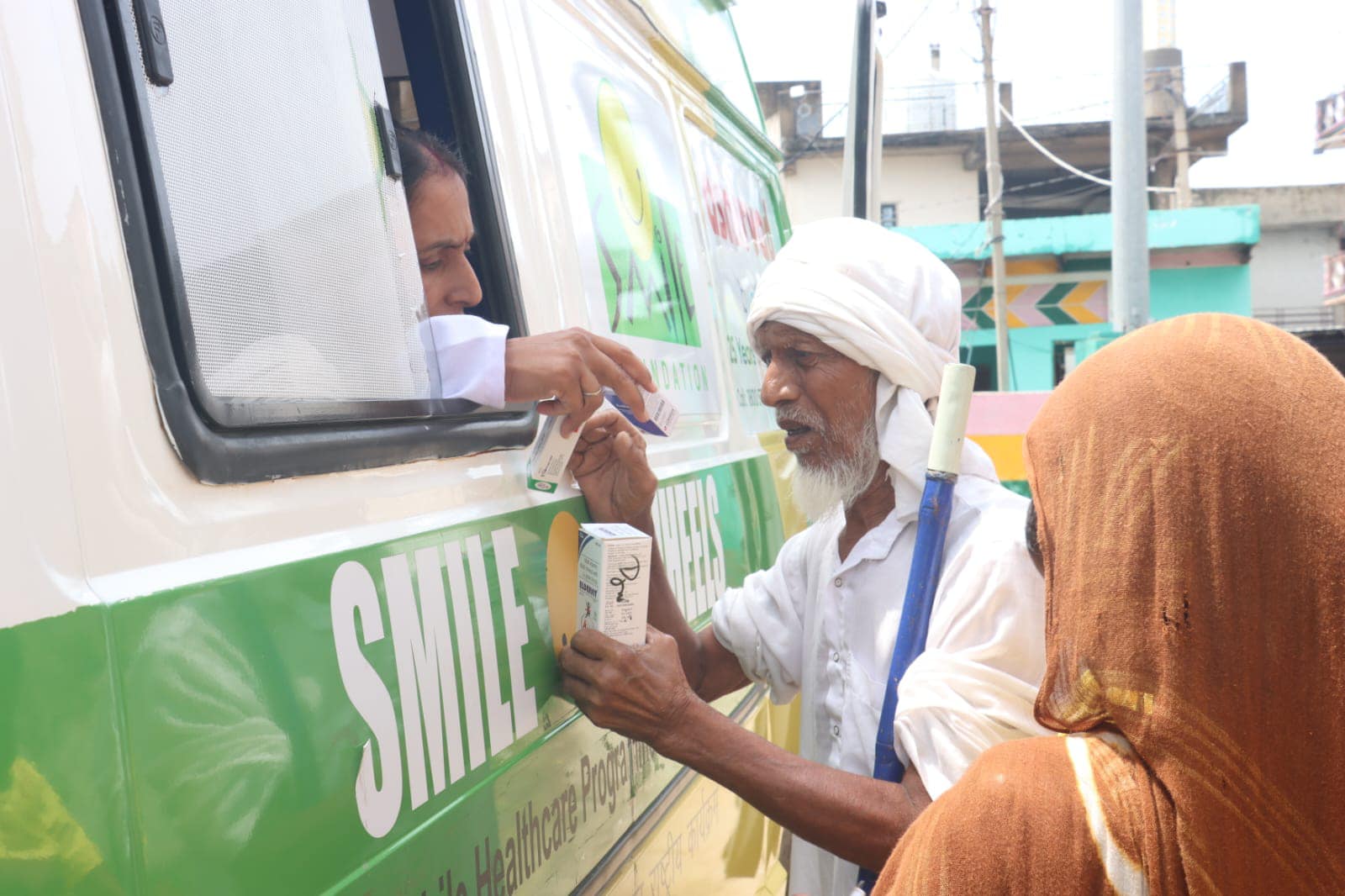For 15-year-old Priya, the dream of becoming a doctor germinated when she read a story in her schoolbook in which the protagonist – a doctor – helped the needy and poor by providing them medical support for free. Priya had watched her ailing grandmother suffer for a long before passing
away. She thought that she could have helped her grandmother and many other women like her if she could become a doctor. Empowerment of girls is important for Priya’s dream.
However, to realise this dream, Priya needs to dedicate herself to studies and pass the NEET examination. Only then she can secure a seat in one of the public institutions. But her parents do not have the financial wherewithal to support her dream. Coming from a remote rural village, Priya knows that she will be married off as soon as she turns 18. Her only chance of attempting to become a doctor is if she gets scholarship support and her parents are convinced that she should be allowed
to go out and study.
But, in a conservative society, it is difficult for girls like Priya to find the support that they need. They are not empowered to stand up for themselves and are often treated as secondary to men. While
the boys are given the opportunity to learn and find jobs, because they are seen as the breadwinners, the girls are not encouraged to study. This is why empowerment of girls is an extremely crucial issue that nations around the world need to work on.
In this article, we will discuss the various arguments and perspectives in support of the importance of empowering the girls in India and around the world.
Right to Thrive: A Human Rights Perspective
It is not a noble cause to empower women and girls; instead, it is their fundamental right to be given equality as enshrined in our constitution. At the same time, it is also a human right of the girls to have access to essential resources and opportunities regardless of their background. Let’s look at how empowering the girls impacts their lives:
- UNESCO estimates that for every additional year of schooling, a girl’s future wages increase
by 10-20%. Denying education to girls perpetuates inequality and stifles their potential. - Girls have the right to live free from violence, harassment and discrimination. Yet, globally, 1 in 3 women experiences physical or sexual violence in her lifetime. Empowerment includes ensuring safe spaces and protection from harm.
- When girls receive proper nutrition, reproductive health services and hygiene education, they thrive physically and mentally.
- Girls should actively participate in decision-making processes within their families, communities and societies. Their voices matter, and their perspectives enrich our collective progress.
Empowerment of girls is also a human rights issue because the discrimination that they face comes in various forms that violate their fundamental human rights. For example, sex-selective abortions, child marriage, denial of inheritance, and gender pay gap are all issues that deny the girls their rightful place in the society.
Girls face stereotypes that limit their aspirations. Empowerment involves dismantling these barriers—whether it’s encouraging girls to pursue STEM fields or challenging traditional gender roles. Even the Sustainable Development Goals (SDGs) by the United Nations recognise the need for empowerment of girls. Various SDGs like SDG 5: Gender Equality and SDG 10: Reducing Inequalities have been framed to address the discrimination against girls and work towards ensuring quality education, gender equality, well-being and justice for them.
Ripple Effect on Families
Empowerment of girls not just uplifts them and provides them a better life, but also creates a ripple effect which benefits entire families. When girls receive education, they become informed decision-makers within their families. Educated girls are more likely to delay marriage, plan pregnancies and seek healthcare. Their empowerment translates into healthier family dynamics, improved communication and better resource allocation.
UNESCO reports that improvements in girls’ education have saved millions of children under age 5. Educated mothers understand nutrition, hygiene and disease prevention. They recognise danger signs early, leading to timely medical interventions. Closing the gap in unmet family planning needs is crucial. Empowered girls can access contraception, plan pregnancies and space births. This directly impacts maternal health, reduces high-risk pregnancies and prevents newborn deaths.
Breaking the Cycle of Poverty
As discussed in the previous section, educated girls make better decisions that empower their families too. Similarly, empowering the girls ensures they achieve financial freedom for themselves and, in that process, break the intergenerational cycle of poverty. A Brookings Institution study underscores that each additional year of schooling for girls increases their eventual wages by an impressive 12%. These enhanced earnings are not merely personal gains; they often flow back into the family. Empowered girls contribute to household income, invest in education, and improve overall well-being.
When girls receive quality education, the benefits extend beyond their own lives. Empowered, educated girls become informed mothers. They understand nutrition, hygiene and preventive healthcare. Their children—both sons and daughters—grow up healthier, better-educated, and better equipped to escape poverty. McKinsey’s research highlights that achieving gender parity in the labour market could add trillions to global GDP. When girls participate fully in the workforce, economies thrive. Their contributions fuel innovation, productivity and sustainable growth.
The Moral Imperative
Now that we have discussed all the practical reasons for empowering the girls, let us talk about a more ethical or philosophical perspective. Even if empowering a girl doesn’t translate into her breaking the cycle of poverty or uplifting her family, it is still our moral and ethical obligation to give them the same opportunities and resources as we do to the boys.
Every girl has the right to shape her destiny. Denying her this right perpetuates injustice. As a society, we bear a collective responsibility to dismantle barriers—whether cultural, legal or economic—that hinder girls’ progress. When we protect their rights, we create a fairer, more compassionate world. The United Nations (UN) also recognises the transformative impact of empowering adolescent girls. It’s not just about education; it’s about ensuring their safety, agency and voice. The UN’s Sustainable Development Goals (SDGs), as discussed previously, underscore this commitment.
Priya’s Journey of Realising Her Dreams
Now this brings us back to the story of Priya. Imagine that she was living in a world where she had equal opportunities as her brother(s) irrespective of the social and economic background that she came from. How would it impact her? It would, first, give her the confidence that her dream can become a reality. This is the first step towards realisation of any dream. Hope creates necessary space for action. If there is no hope, then any individual can surrender to despair and be forced to accept his or her fate.
By ensuring Priya and millions of other girls like her are empowered like in the initiatives of Smile Foundation, we can allow them to dream and dream big. We can enable them to break the cycle of social oppression that has existed for centuries. They can become pioneers of change and role models for other girls in their communities. It can create a transformative effect which leads to a bigger positive change. By achieving this, we can achieve the dream of creating a vibrant India and a just world.









